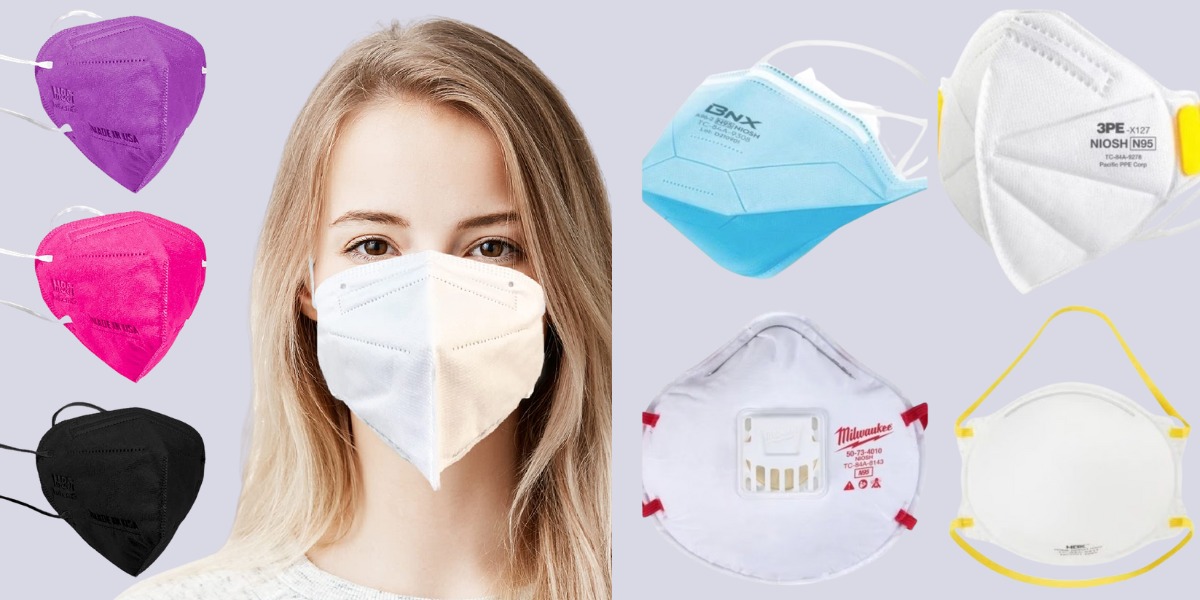Are you tired of purchasing N95 masks made in foreign countries with questionable quality? Look no further than the M95i, a high-quality mask made right here in the USA. In this blog post, we will explore the benefits and features of this top-of-the-line protective gear and why it should be your go-to choice for all your respiratory needs. So buckle up and get ready to discover the excellence of American-made N95 masks!
What Is N95 Made Of?
The n95 respirator, also known as the N-95 or P95 is a type of mask designed to protect against airborne pollen, bacteria, and other respiratory pathogens. The mask is made of a neoprene rubber compound that is resistant to oil and water. The n95 masks are available in different sizes and styles to fit almost any face.
The n95 mask was developed in the late 1980s by 3M Corporation. It became available commercially in 1995. The n95 mask is most commonly used by healthcare workers who work with patients who are at high risk for developing asthma or other respiratory infections.
Some people object to the use of the n95 mask because they believe it causes more irritation than traditional masks. However, this view has not been supported by scientific evidence.
How Does It Work?
Nano is a revolutionary new product that uses self-healing technology to help repair small tears or holes in the fabric.
Simply apply the Nano to the tear or hole, and it will automatically start healing the fabric. No stitches are required – Nano just fixes things right up!
The Nano is made in the USA, and it’s eco-friendly too – it doesn’t use any harmful chemicals or dyes. Plus, it comes with a lifetime warranty.
So why not give Nano a try? It’s definitely one of the coolest products out there!
How Safe Is It?
Making a purchase from a U.S. company can feel like a safer bet than shopping overseas, but is it really? In the past few years, there have been several high-profile cases of American companies being caught exporting defective or unsafe products to other countries. For example, in 2013, Samsung was fined by the Canadian government for selling recalled Galaxy Note 7 smartphones in Canada.
And earlier this year, toy manufacturer Mattel was forced to recall more than two million toys due to potential choking hazards. So how safe is it to buy products made in the United States?
There are many factors to consider when assessing the safety of products made in the United States. First and foremost, U.S. companies are required by law to comply with safety standards set by both the U.S. government and international organizations such as ISO 9001:2015 (the international standard for quality management). This means that any product that leaves U.S. shores has been through a rigorous testing process and is likely to meet or exceed all applicable safety standards.
Additionally, many U.S.-made products are compliant with European Union (EU) safety standards, meaning that they meet or exceed equivalent safety requirements in most cases. In some cases, however, EU standards may be stricter than those of the United States, so it’s always important to read product labels carefully before making a purchase.
What Are The Benefits?
There are many benefits to purchasing items made in the United States. Not only do these products often have higher quality, but they are also more sustainable. For example, manufacturing processes that use harmful chemicals can be replaced with more environmentally friendly alternatives, such as water and wind power. In addition, products made in the U.S. tend to support American jobs. By buying Made in the USA products, you are helping to support businesses and workers in your community!
What Are The Drawbacks?
There are a few drawbacks to buying American-made products. First, there may be a higher price tag because of the extra costs associated with producing in the United States. Second, some American-made products may not be as durable or as functional as their foreign counterparts. Finally, some Americans may feel that they are supporting U.S. businesses only if they purchase domestically made products, rather than items that are manufactured internationally but purchased here in the United States.









